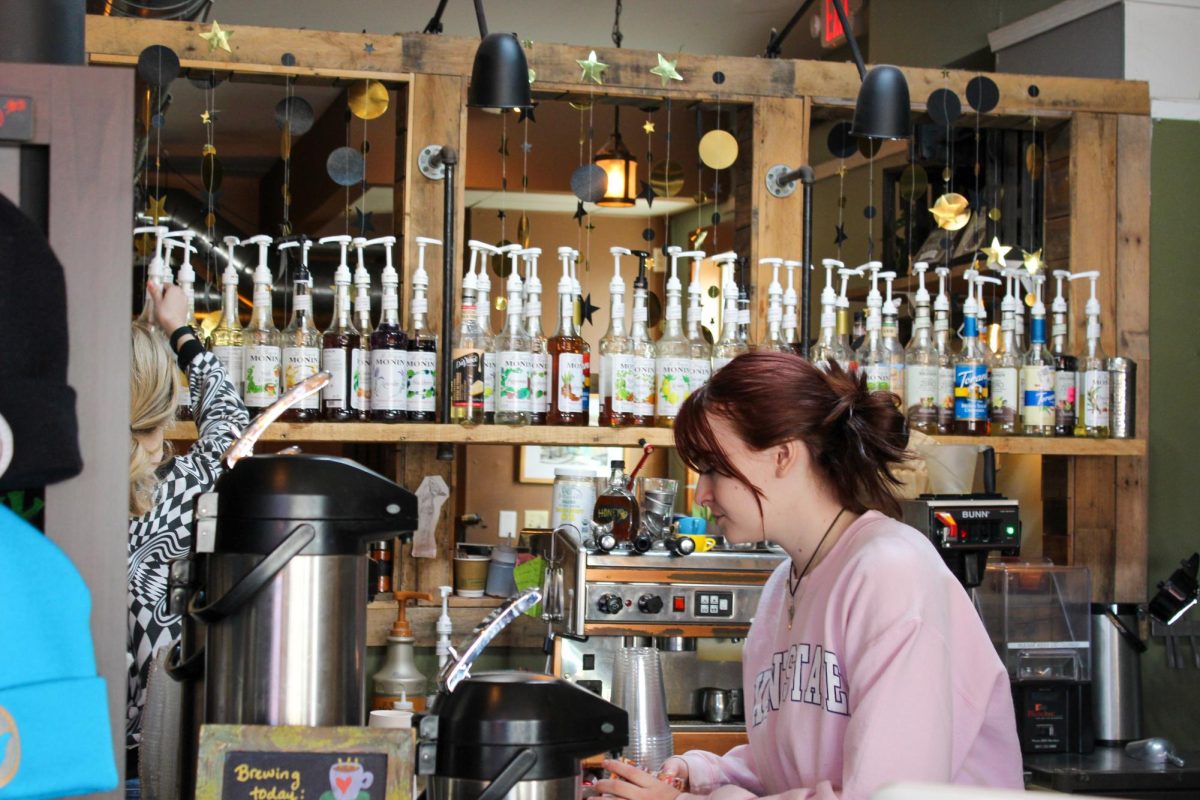Breaking Stereotypes event hopes to end female stereotypes across globe
November 18, 2017
“Asian women can not drive.” “Turkish women are forced to wear hijab.” “French women have to be fashionable.”
Most people have heard of these stereotypes or stereotypes similar to these at some point.
Breaking Stereotypes, a presentation put on by the KSU International Women’s Group (IWG) and the Office of International Student Affairs, addressed these stereotypes, along with other generalizations given to women across the world, as part of International Education Week in the Student Center Friday.
Anne Neveu, a translation studies graduate student and speaker at the event, explained that the event aimed to describe why stereotypes are typically harmful and how people can go beyond these stereotypes to break them.
“I’m just hoping that maybe some of the ideas and stereotypes people may have had about those countries were a little bit broken down,” Neveu said.
Neveu used her own life in France and stereotypes attached to French women within her presentation.
“What I’ve heard typically about the French in general is that we are arrogant,” Neveu said. “Maybe in a big city like Paris where people are in a hurry, but it’s the same in New York. French people are really welcoming and friendly if you meet them.”
Neveu hoped by telling her story, people could change the negative views created against women.
“I hope today people learned to go beyond the first impression that you may have of someone, or the preconceived ideas you may have,” Neveu said.
This was true for Najat Ayidh Almabadi Jr., a sophomore English as a second language major and attendee of the event, who admitted she had believed in some false stereotypes beforehand.
“After I listened to this presentation, I did change my mind about some countries,” Almabadi said.
Almabadi also discussed certain stereotypes foreigners believe exist within her country, Saudi Arabia.
“A lot of people think that all of the families in Saudi Arabia are rich, but that’s not true,” Almabadi said. “We have rich people in my country, but most people are moderate.”
The event’s structure allowed for group and personal discussions as breaks provided during the presentation encouraged attendees to continue the conversation with one another.
“I think when you talk about these problems, you’re taking steps toward solving them,” Simge Engelkiran, one of the presenters, said. “Everyone is able to share with their communities, so talking about it can bring consciousness to people’s minds.”
Engelkiran, who is from Cyprus, talked about how an island country as small as Cyprus holds stereotypes where women are held to a certain standard.
“Two of them that come to my mind are that women shouldn’t have short hair cuts and women don’t understand politics,” Engelkiran said.
Bangladesh, another country covered during the presentation, was talked about having certain preconceived stereotypes centered around men and women within society.
One example included is that textbooks used in Bangladesh schools still contain gender bias with different illustrations of women and men holding certain traditional jobs and duties. Although the country is moving away from this sort of thinking, children who grow up reading the textbooks may continue to believe the stereotypes.
The presentation ended with a discussion on how to break these stereotypes led by Neveu. The audience and Neveu decided that the best way to end stereotypes and natural categorical thinking is to talk to others and learn more about other cultures.
Programs like Kent State’s International Friendship Program, which pairs international students with faculty and staff to have cultural conversations and exchanges, was one suggestion to learn from others and break stereotypes.
Neveu and the audience also said that students should get involved in any way that would allow them to open up to other countries and cultures to decrease the stereotypes and fallacies that surround women and people in general from around the world.
Eden Kraus is the international affairs reporter. Contact her at [email protected].















